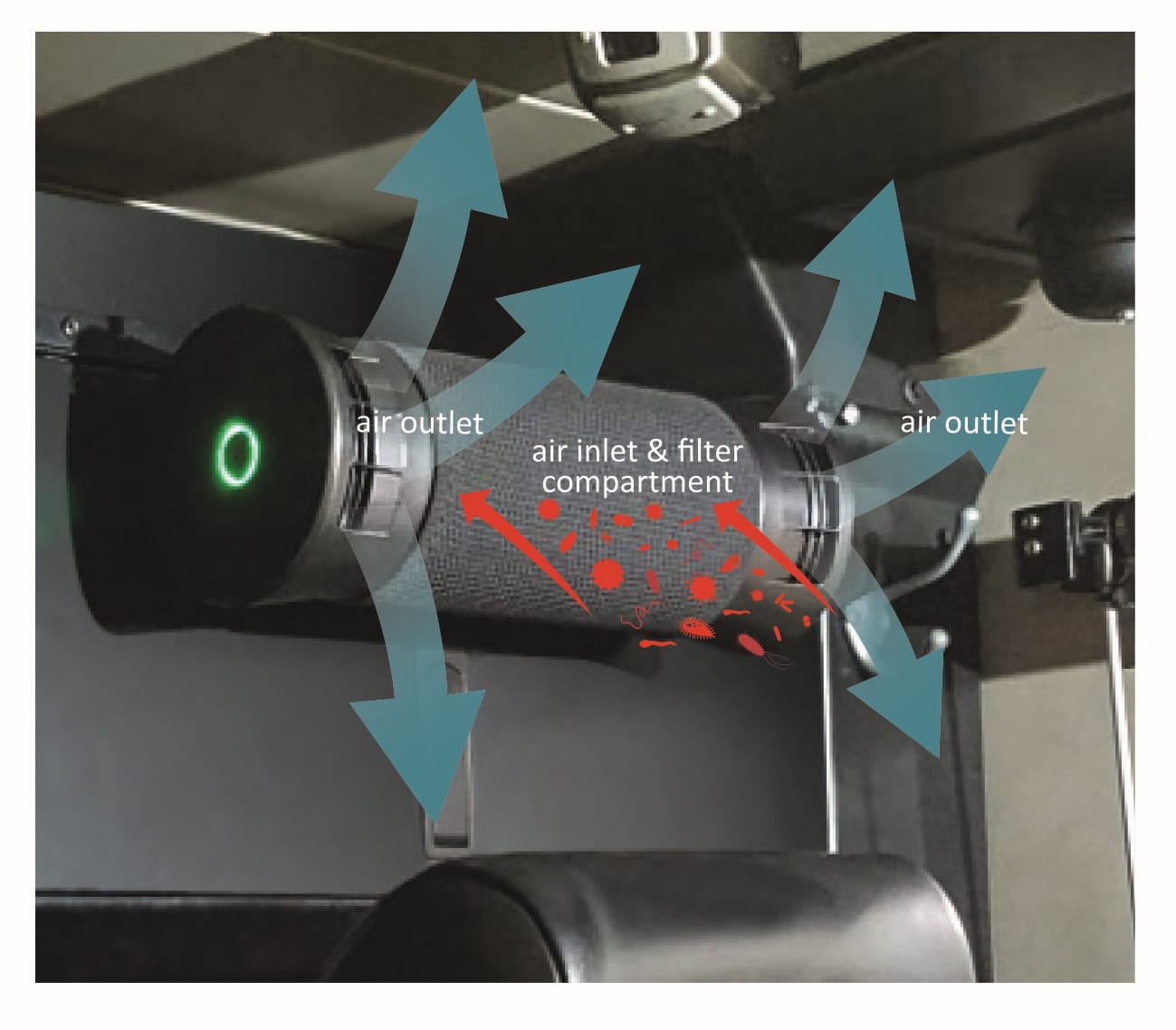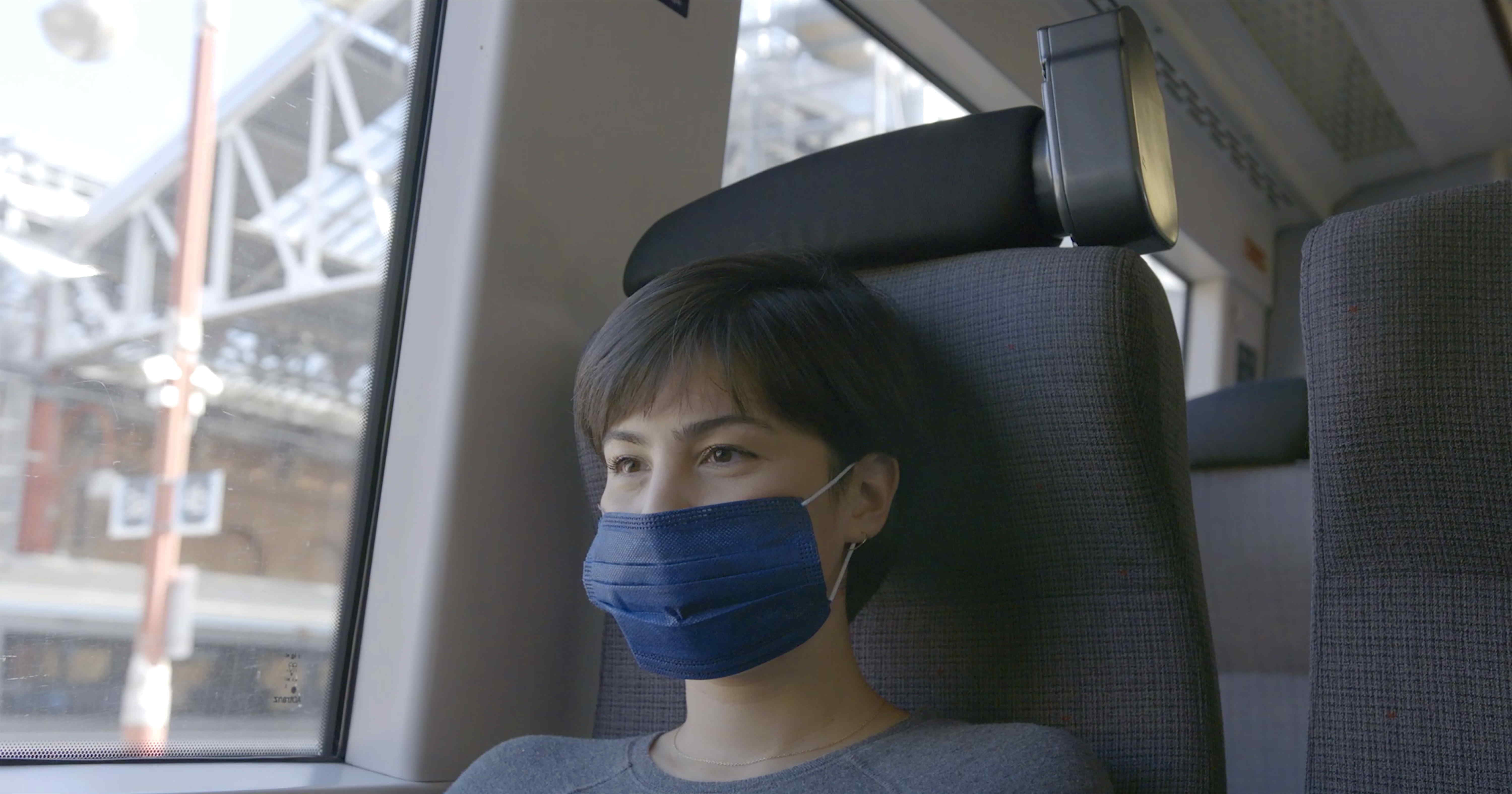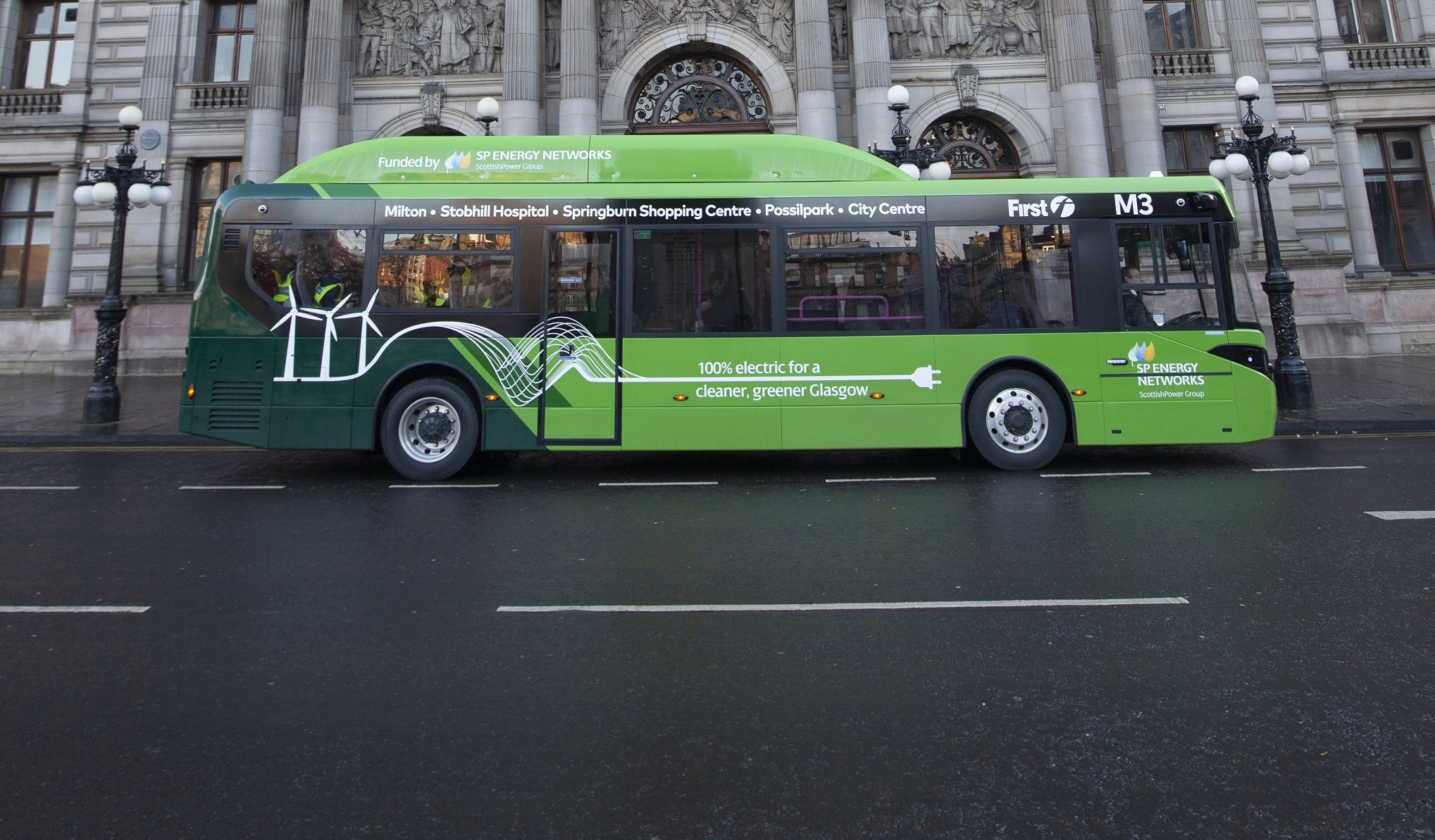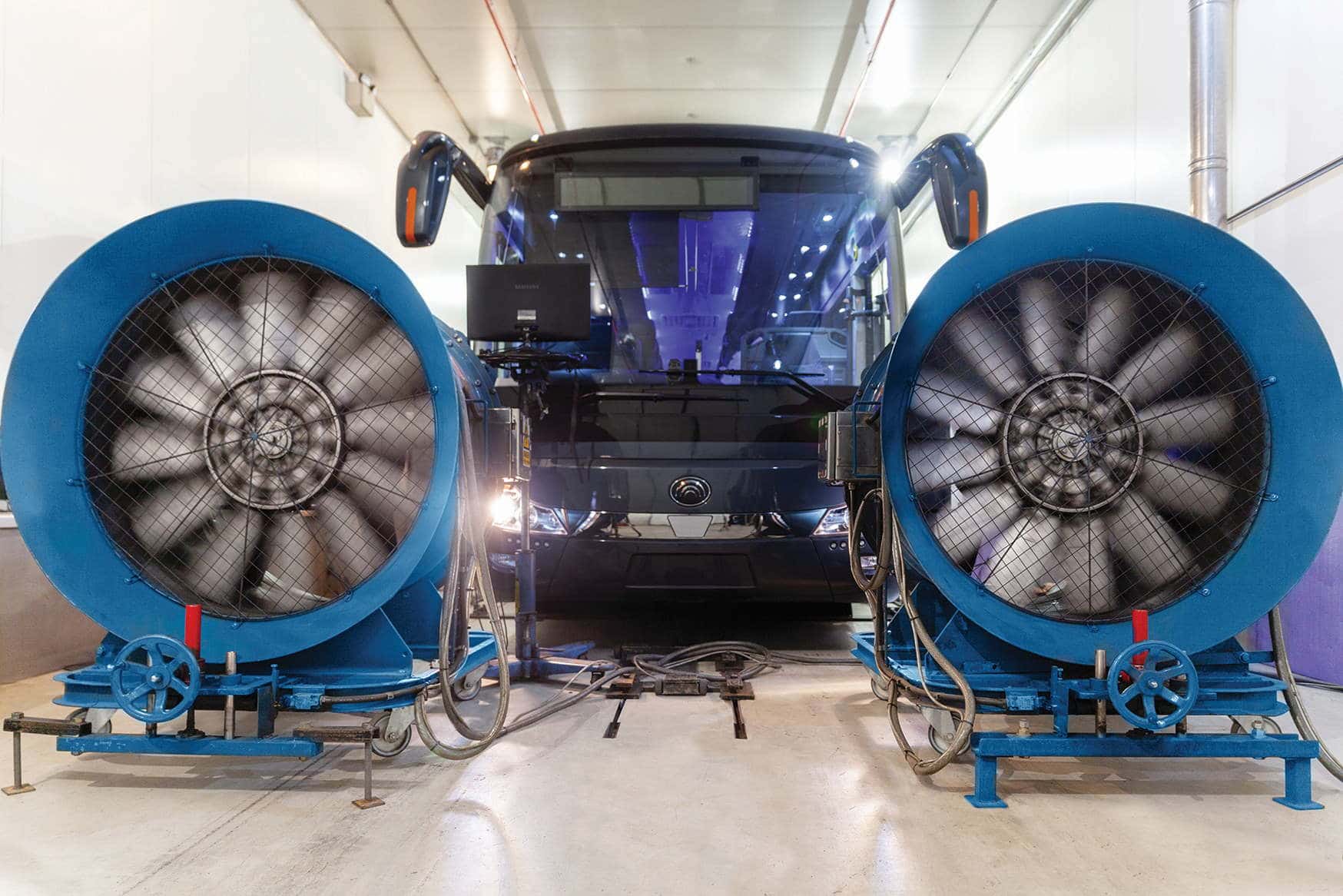The air quality debate has been heightened by the COVID-19 pandemic. AirLabs is looking at how air inside vehicles can be cleaned up
What is the legacy of COVID-19 within public transport?
For AirLabs’ Stuart Walker and Mike Miles, it’s going to be a greater public awareness of the detrimental impact airborne pollutants and pathogens have on our day-to-day life.
The key word here is airborne. One of the ways that coronaviruses spread is through fine airborne particles, that can remain suspended in the air long after the source of contamination has left. This means that, no matter how robust a disinfection process aboard a public service vehicle, the airborne danger is still present and dependent on the number of uncontaminated passengers inside.
This is where AirLabs’ air filtration solutions step in, as they capture potentially contaminated airborne particles to create clean air zones for drivers and passengers which can help to halt the spread of coronavirus.
Air quality is key
The global pandemic has cast new light on the air quality debate, not just on the reduction of pollution during the national lockdown, but with links made between poor air quality in urban centres and susceptibility to viruses that attack the respiratory system.
Developed by AirLabs in Copenhagen and independently tested by the Institute of Energy and Environment in Germany, the AirLabs AirBubbl is already in use in the driver cabins of public transport fleets around the world, including Warrington’s Own Buses in the UK, and the technology has also been used in high footfall passenger areas such as Marylebone.
The AirBubbl filters more than 95% of airborne virus particles and contaminated particulate matter and floods the vehicle with over 30,000 litres of clean air every hour, to keep drivers safe as they provide vital public transport services.
The technology lends itself to transport and industry applications, where urban environments pose a high risk to those exposed to dangerous levels of air pollution. The unique combination of a nano-carbon filter and high-grade particle filter, together with patented air flow technology, means the AirBubbl is able to remove both harmful particulate matter and gases in minutes. In coach and bus applications, the unit is placed close to the driver and is made more effective by the use of an enclosed space.
AiroSafe has been designed by AirLabs to remove airborne virus particles and particulate matter from the passenger cabins of public transport, across coaches, buses and trains. It creates a personal clean air zone for every seat and is in the final stages of development.
“Our business is founded in science and our team has decades of experience in developing clean air technology,” says Global Product Manager Mike Miles. “Prior to COVID-19, we worked with public transport operators to understand air quality and protect drivers in that space. As we came into 2020, our scientific team took time to understand that the virus is very much an airborne issue, and as a physical particulate the virus particles can be trapped with an effective filter.”
Following further research in how particulates interact in an enclosed space, including details on how concentration determines sickness, it became clear that diluting the concentration of coronavirus particles is critical to keeping passengers and drivers safe. An essential feature of the AirBubbl and AiroSafe is their ability to deliver vast amounts of clean air quickly and efficiently, in addition to filtering out harmful pathogens and pollutants.
A unique offering
The AirBubbl proactively removes coronavirus particles to reduce the viral load within the space of the drivers’ cab and vehicle. The Centers for Disease Control and Prevention, the British Medical Association and the World Health Organisation all corroborate that the airborne spread of COVID-19 is of the most concern when it comes to virus transmission. But Stuart from AirLabs suggests that there is limited awareness of this fact when it comes to public transport.
A low number of recorded cases as a result of travelling on public transport has led many to believe buses are clean and safe. While cleaning methods can effectively kill the virus on surfaces and touch points, airborne transmission remains a problem which cannot be ignored.
“ONS data shows us that one of the most at-risk professions are public transport drivers, so it is essential that operators focus on airborne transmission as an area for concern,” says Stuart.
While many coach and bus operators put screens in place to protect drivers, implemented new cleaning regimes and mandated mask-wearing, Transport for London recently revealed that 57 staff have been killed by COVID-19 in London alone. The threat to drivers is exacerbated by the fact that they are exposed to dangerous levels of air pollution on a daily basis, with around 90% of city dwellers in Europe exposed to pollutants at concentrations higher than the air quality levels deemed harmful to health.
Use and maintenance
The AirBubbl is connected to the vehicle power supply via a USB connection for consumer units, or hardwired into the vehicle circuits for commercial applications. The units are “plug and leave” according to AirLabs, with no manual intervention on a day-to-day basis required, besides occasional filter replacement, which are required every 1,000 hours of operation.
The development of the new passenger focused product, AiroSafe, is a key focus for the company in 2021 and could have a significant impact on passenger capacity. Mike says: “While we cannot mandate it, with our solutions deployed on a vehicle in this format, removing social distancing becomes a possibility, which could have a huge impact on how the public transport industry can get back to capacity.”
Pandemic legacy
The improvement in air quality during the national lockdown has undoubtedly increased awareness of the effects of road traffic pollution. The wearing of face coverings means the general public is more acutely aware and considerate of the air quality around them. A reluctance to return to public transport in many areas demonstrates this wariness. The debate on air quality now is one that can’t be ignored. “We’ve seen areas and sectors which are taking air pollution far more seriously because of this increased consideration,” says Mike. “Outside of the pandemic, people will not stop thinking about this. There is an immediate need for clean air solutions.”
For public transport operators, it has never been more important to ask themselves whether they are providing a clean, safe environment for drivers and passengers. As Stuart explains, “If public transport is to turn itself around, it has to provide an environment that is greener, not only in terms of its own emissions, but also by providing a safer driver and passenger environment than the one that exists now.”
“ONS data shows us that one of the most at-risk professions are public transport drivers, so it is essential that operators focus on airborne transmission as an area for concern”
Watch the webinar
Mike Miles, Product Marketing Manager for Transport at AirLabs, recently discussed how current safety measures cannot adequately protect drivers against airborne coronaviruses. To watch the recorded presentation, click here.




























